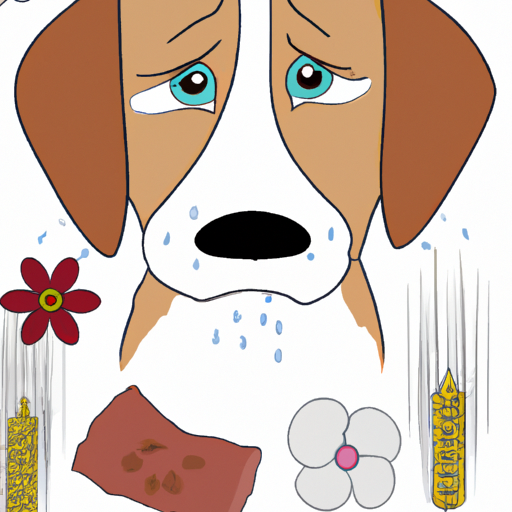Allergies are not just a human problem; they can affect our furry friends as well. Just like in humans, dogs can experience a wide range of allergic reactions to various substances, ranging from mild discomfort to severe, life-threatening reactions. In this guide, we’ll explore the common symptoms of allergies in dogs, potential causes, and treatment options.
Table of Contents
- Common Symptoms of Allergies in Dogs
- Types of Allergies in Dogs
- Diagnosing Allergies in Dogs
- Treatment Options for Dogs with Allergies
- Preventive Measures
- Frequently Asked Questions
Key Takeaways
- Allergies in dogs can manifest in a variety of ways, including skin irritation, gastrointestinal issues, and respiratory distress.
- There are several types of allergies that can affect dogs, including food allergies, environmental allergies, and flea allergies.
- Diagnosing allergies in dogs often involves elimination diets, skin tests, or blood tests.
- Treatment options can include medication, hypoallergenic diets, and allergy shots.
- Preventive measures include regular grooming, using hypoallergenic products, and avoiding known allergens.
Common Symptoms of Allergies in Dogs
Allergies in dogs can manifest in various ways. Some dogs may show clear outward signs, while others may exhibit more subtle symptoms. The most common signs of allergies in dogs include:
- Skin irritation or inflammation – Also known as dermatitis, this can result in red, itchy skin. Dogs may scratch, bite, or chew at the affected areas, leading to hair loss or hot spots.
- Gastrointestinal issues – Food allergies can cause vomiting, diarrhea, and excessive gas.
- Respiratory distress – Some dogs may experience coughing, sneezing, and difficulty breathing.
- Ear infections – Allergies can lead to frequent ear infections, resulting in red, itchy ears, and possibly a foul odor or discharge.
For more information on the signs and symptoms of allergies in dogs, visit the American Kennel Club website.
Types of Allergies in Dogs
There are several types of allergies that can affect dogs. These include:
- Food Allergies: These can develop at any age and can be triggered by any food, although some are more common allergens than others.
- Environmental Allergies: These are allergies to substances in the dog’s environment, such as dust mites, pollen, or mold.
- Flea Allergies: Some dogs are allergic to flea saliva, leading to severe skin irritation and inflammation.
For more details about types of allergies in dogs, check out this blog post on OneTopDog.
Diagnosing Allergies in Dogs
Diagnosing allergies in dogs often involves a process of elimination. Your veterinarian may recommend an elimination diet to identify food allergies. Skin tests may be used to diagnose environmental allergies, and blood tests can help identify specific allergens. More details about diagnosing allergies can be found here.
Treatment Options for Dogs with Allergies
Treatment for allergies in dogs depends on the type of allergy and the severity of the symptoms. Options can include:
- Medication: Antihistamines, steroids, or other medications may be used to manage allergy symptoms.
- Hypoallergenic Diets: For dogs with food allergies, a special diet may be necessary.
- Allergy Shots: These can help desensitize the dog to specific allergens over time.
Learn more about treatment options for allergies in dogs in this OneTopDog article.
Preventive Measures
There are several steps you can take to help prevent allergies in your dog:
- Regularly groom your dog to remove potential allergens.
- Use hypoallergenic shampoos and other products.
- Keep your home clean to reduce allergens like dust and mold.
- Avoid foods that are known to cause allergies in dogs.
Frequently Asked Questions
Q: Can dogs develop allergies at any age?
A: Yes, dogs can develop allergies at any age, although they typically appear between one and three years of age.
Q: Can dogs be allergic to humans?
A: While it’s rare, dogs can be allergic to human dander.
Q: Is there a cure for allergies in dogs?
A: While there’s no cure for allergies, the symptoms can often be managed with the right treatment plan.
Q: Can dogs grow out of allergies?
A: It’s possible for a dog’s immune system to become less reactive to certain allergens over time, but this is not guaranteed.
Remember, if you suspect your dog has an allergy, it’s important to consult with a veterinarian for an accurate diagnosis and treatment plan.



